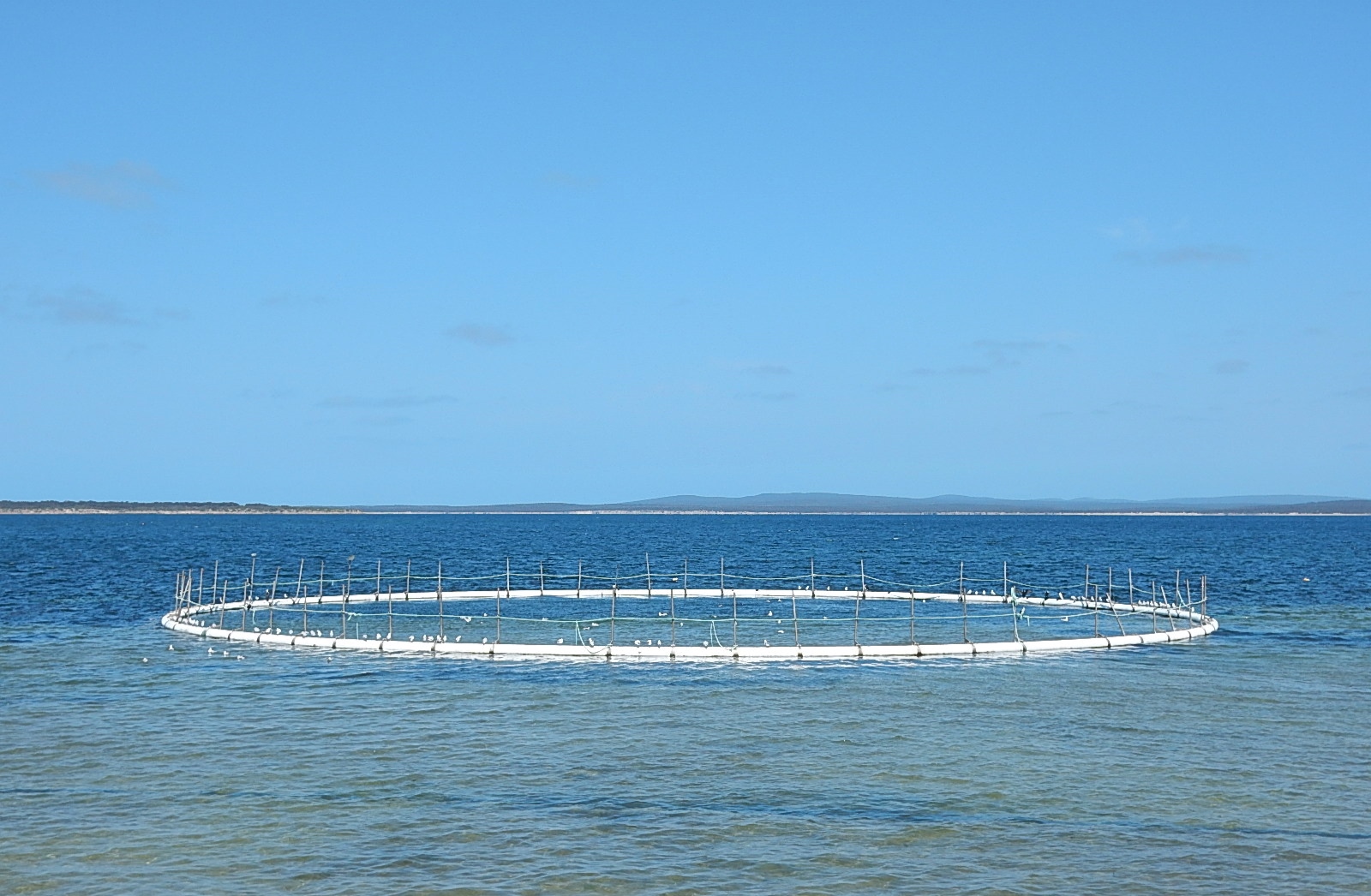ACDP Fish Diseases Laboratory and aquatic animal health

Aquatic animals, like terrestrial animals and humans, can be affected by infectious diseases, which can be caused by viruses, bacteria, fungi and parasites.
Disease can have devastating impacts on our aquaculture industry and our aquatic ecosystems.
It is important that aquatic animal health is managed effectively to enable the sustainable use of both commercial and recreational fisheries and enhance the health and wellbeing of aquatic animals being farmed.
ACDP’s Fish Diseases Laboratory plays an important role in aquatic animal health in Australia and internationally.
Australia’s national reference laboratory
ACDP Fish Diseases laboratory (AFDL) is Australia’s national reference laboratory for significant emerging and exotic (foreign) aquatic animal pathogens.
As the national reference laboratory, AFDL have the primary responsibility for confirmation or exclusion of notifiable diseases when a significant emerging or exotic aquatic animal disease is suspected or detected.
Our scientists work with state and national agencies to test samples and provide assistance with management of an outbreak.
ACDP provides an Emergency Animal Disease Diagnostic Service for all states and territories which operates 24 hours a day, seven days a week on every day of the year.
A list of Australia’s notifiable diseases affecting aquatic animals can be found on the Department of Agriculture, Fisheries and Forestry website.
Australia’s commitment to aquatic national health
Australia has developed a national strategic plan for aquatic animal health. The plan, called AQUAPLAN 2022-2027, has been developed in collaboration with industry and governments, including AFDL.
Details of the fourth national strategic plan for aquatic animal health can be found on the Department of Agriculture, Fisheries and Forestry website at AQUAPLAN.
AFDL’s role in international aquatic animal health
AFDL is a World Organisation for Animal Health (WOAH) Reference Laboratory for several international diseases. This means that our scientists in the ACDP Fish Diseases Laboratory are internationally-recognised experts for these diseases.
Being a WOAH Reference Laboratory means our scientists assist with disease diagnosis and training to increase the capability for in-country disease diagnosis, both within Australia and internationally.
Specifically, ACDP is a WOAH Reference Laboratory for infection with Abalone herpesvirus, Ranavirus, Yellow head virus genotype 1 and Epizootic haematopoietic necrosis virus.
As an international reference laboratory for these four aquatic diseases, ACDP has a responsibility to stay up to date with diagnostic techniques, and to be able to pursue scientific and technical investigations to help solve problems relating to these diseases, their detection and management.
Learn more about the WOAH Reference Laboratory network.
Additional services offered by AFDL
The ACDP Fish Diseases Laboratory specialises in the diagnosis and research of diseases of aquatic animals (finfish, molluscs and crustaceans) with an emphasis on exotic and newly emerging diseases.
Our roles include disease diagnosis and the identification of infectious pathogens and their pathogenicity, development of diagnostic tests for exotic and emerging diseases and export certification testing and health surveillance.
Details of services available including price lists and submission forms are available from our Laboratory Services portal – ACDP Fish Diseases Laboratory.
ACDP Fish Diseases Laboratory and aquatic animal health
Aquatic animals, like terrestrial animals and humans, can be affected by infectious diseases, which can be caused by viruses, bacteria, fungi and parasites.
Disease can have devastating impacts on our aquaculture industry and our aquatic ecosystems.
It is important that aquatic animal health is managed effectively to enable the sustainable use of both commercial and recreational fisheries and enhance the health and wellbeing of aquatic animals being farmed.
ACDP’s Fish Diseases Laboratory plays an important role in aquatic animal health in Australia and internationally.
Australia’s national reference laboratory
ACDP Fish Diseases laboratory (AFDL) is Australia’s national reference laboratory for significant emerging and exotic (foreign) aquatic animal pathogens.
As the national reference laboratory, AFDL have the primary responsibility for confirmation or exclusion of notifiable diseases when a significant emerging or exotic aquatic animal disease is suspected or detected.
Our scientists work with state and national agencies to test samples and provide assistance with management of an outbreak.
ACDP provides an Emergency Animal Disease Diagnostic Service for all states and territories which operates 24 hours a day, seven days a week on every day of the year.
A list of Australia’s notifiable diseases affecting aquatic animals can be found on the Department of Agriculture, Fisheries and Forestry website.
Australia’s commitment to aquatic national health
Australia has developed a national strategic plan for aquatic animal health. The plan, called AQUAPLAN 2022-2027, has been developed in collaboration with industry and governments, including AFDL.
Details of the fourth national strategic plan for aquatic animal health can be found on the Department of Agriculture, Fisheries and Forestry website at AQUAPLAN.
AFDL’s role in international aquatic animal health
AFDL is a World Organisation for Animal Health (WOAH) Reference Laboratory for several international diseases. This means that our scientists in the ACDP Fish Diseases Laboratory are internationally-recognised experts for these diseases.
Being a WOAH Reference Laboratory means our scientists assist with disease diagnosis and training to increase the capability for in-country disease diagnosis, both within Australia and internationally.
Specifically, ACDP is a WOAH Reference Laboratory for infection with Abalone herpesvirus, Ranavirus, Yellow head virus genotype 1 and Epizootic haematopoietic necrosis virus.
As an international reference laboratory for these four aquatic diseases, ACDP has a responsibility to stay up to date with diagnostic techniques, and to be able to pursue scientific and technical investigations to help solve problems relating to these diseases, their detection and management.
Learn more about the WOAH Reference Laboratory network.
Additional services offered by AFDL
The ACDP Fish Diseases Laboratory specialises in the diagnosis and research of diseases of aquatic animals (finfish, molluscs and crustaceans) with an emphasis on exotic and newly emerging diseases.
Our roles include disease diagnosis and the identification of infectious pathogens and their pathogenicity, development of diagnostic tests for exotic and emerging diseases and export certification testing and health surveillance.
Details of services available including price lists and submission forms are available from our Laboratory Services portal – ACDP Fish Diseases Laboratory.
